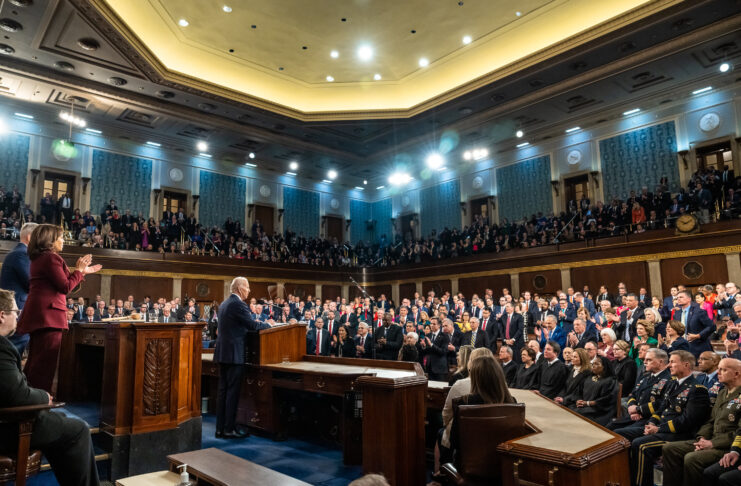The nation's political class assembled in Congress to witness the bread-and-circus spectacle that is the State of the Union speech. Like so many of its predecessors, it was devoid of substance and rich in performative outrage.
This is all the more reason to ignore these spectacles, to put them aside, and, if the mood strikes, to read the written text of the president's report on the nation's health.
Mr. Biden delivered the only important line right out of the gate: “If I were smart, I would go home now.”
However, presidents can't resist the opportunity to look presidential on camera, so Biden carried on with remarks that will be largely forgotten before the week is out.
There is no constitutional requirement that a president present a State of the Union message in person. For much of the nation's early history, they didn't do so, preferring instead to send a written report outlining the country's current status and suggesting new legislation.
Both George Washington and John Adams delivered their annual messages in person to Congress. It was Thomas Jefferson who broke the pattern of making a “throne speech,” considering it antithetical to the new nation's values. As the Cato Institute's Gene Healy wrote:
…Jefferson regarded that practice as “an English habit, tending to familiarize the public with monarchical ideas,” and he put a stop to it, choosing instead to send his annual message in writing. For 112 years, presidents conformed to Jefferson's example, until the power‐hungry Woodrow Wilson delivered his first annual message in person to Congress assembled. One senator decried the change in pointed terms: “I am sorry to see revived the old Federalistic custom of speeches from the throne…. I regret this cheap and tawdry imitation of English royalty.” Yet Wilson's habit caught on. Most presidents in the 20th century delivered the message in person. In 1966, Lyndon Johnson moved the speech to prime-time viewing hours to reach a national audience.
Not surprisingly, an analysis of SOTU addresses, once they became media events, showed that something essential was lost:
…political scientist Elvin T. Lim tracked the evolution of presidential rhetoric through two centuries of State of the Union addresses. Lim notes “an increasing lack of humility” on the part of the president, as well as declining references to the Constitution, which were quite prevalent in the 19th century. By the late 20th century, it was “all about the children,” with “Presidents Carter, Reagan, Bush, and Clinton [making] 260 of the 508 references to children in the entire speech database, invoking the government's responsibility to and concern for children in practically every public policy area.”
Small “r” republican values couldn't stand up to the allure of the spotlight, and the pomp of a joint congressional session. Enough of an allure that assorted members of Congress feel compelled, even entitled, to grab as much of the spotlight for themselves as possible.
One day, a president may again have the courage, foresight, and humility to end the State of the Union Show (in Color!) and return to the Jeffersonian practice of putting a written copy of his report on every member's desk.
Constitutional obligation fulfilled. Increasingly tawdry reality show canceled.
The opinions expressed in this article are those of the author and do not necessarily reflect the positions of American Liberty News.
READ NEXT: Biden Approval Rating Hits New Low


